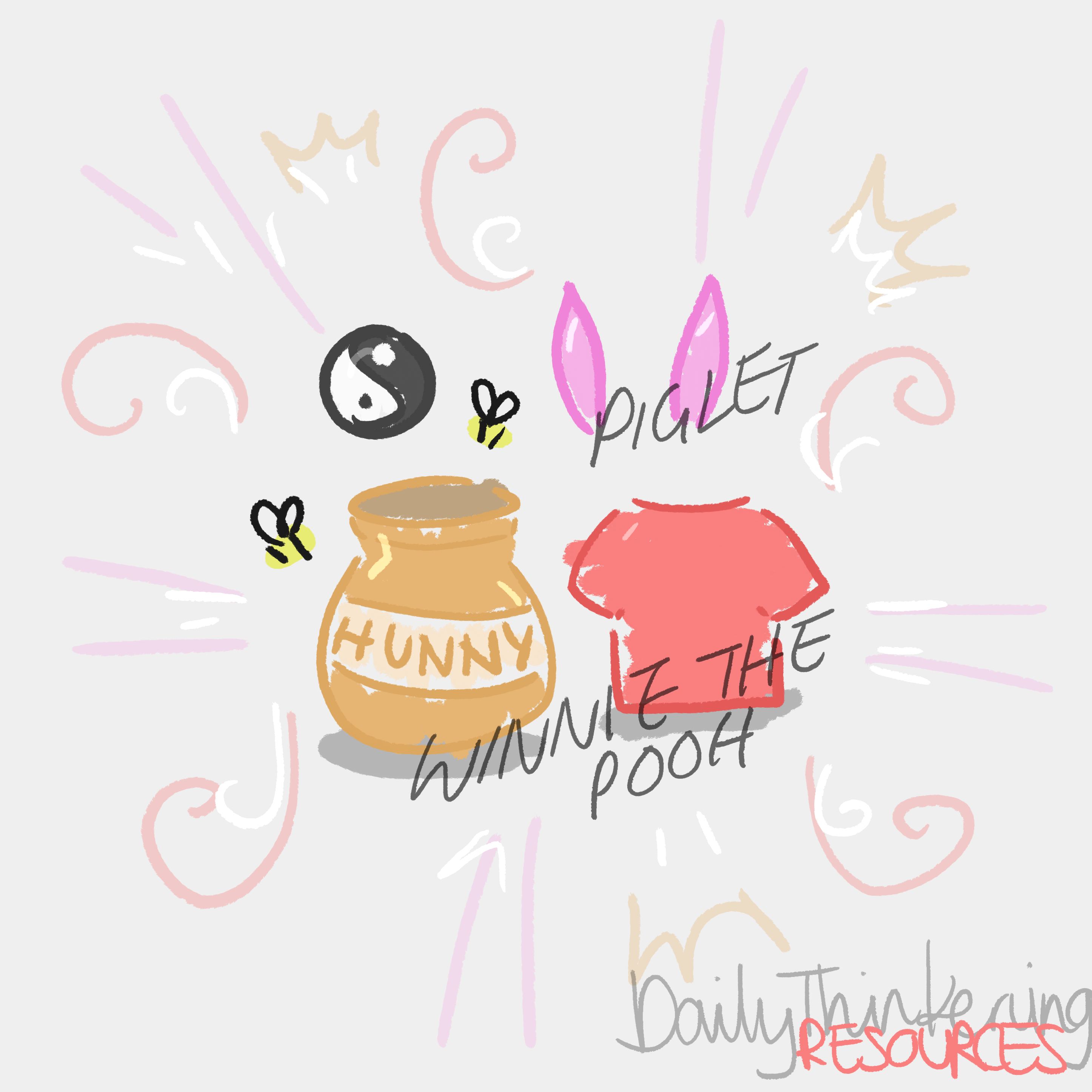"Do you really want to be happy? You can begin by being appreciative of who you are and what you've got.” - Benjamin Hoff, The Tao of Pooh
Welcome to another one of the Resources posts. This post will go over the philosophies, knowledge and wisdom from a certain book that is popular in the field of philosophy.
You may or may not have gotten the reference from the image above ^ but you most likely did because I decided to name the two significant characters that many people would have experienced in their lifetime. It's the bear we all know and love: Winnie The Pooh, and his best (and small) friend, Piglet, from the series/books/films of The Adventures of Winnie The Pooh by Alan Alexander Milne (under Disney). If you aren't familiar with The Adventures Of Winnie The Pooh, I'd highly recommend it - it's a wonderful childhood memory of mine and others who were followers of the Disney channel.
I'm not here to give the summary of it, rather the philosophical side of it ^^ and lead you to a well-known book that relates this children's show with the field of philosophy :).
That book happens to be The Tao Of Pooh, by Benjamin Hoff.
The Tao Of Pooh is a friendly-read that mixes together the light-heartedness of The Adventures of Winnie The Pooh and Taoism. Also known as Daoism, Taoism is a Chinese philosophy founded by a man named Lao-Tzu (and many different spellings) that focuses on living in harmony with the Tao (or Dao), otherwise known as The Way. To achieve this, Taoism centres around moving with the flow - seeing What's There. But what is 'The Way'? The book says that it would simply be wrong to give such a straightforward, definitive definition. So, they go about describing it throughout the book, mixing up funny and homely dialogues with insightful readings and stories of the past, all with the help of (mostly) Winnie The Pooh which the author refers to as the Uncarved Block. Interpret that as you may, but the book will better illustrate that.
In terms of the book itself, it's a wonderful and easy read, as if the words hug you in like you were there talking with Winnie and the author. Combined with humorous moments, if you read to understand, you just might feel like a burden was lifted off your mind, such a light hearted approach to explaining a philosophical topic can be quite mentally refreshing. The approach is fun but is still there to paint a picture of The Way and give you teachings along the way that relate. Thus, there's no doubt that you'll close the book empty-handed. This is why it is commonly included in the curriculum for students who study philosophy.
BUT WAIT THERE'S MORE!
There's a sequel to this book that instead of mainly focusing on Winnie The Pooh, it mostly uses the personalities of Piglet: The Te Of Piglet. Piglet is very small compared to his tall friends, with a quiet and thoughtful character. The very essence of the beauty of being 'small' is drawn out and explained in the book. What could such a small being do, anyway? Well, one quote from The Adventures Of Winnie The Pooh puts this simply:
"Sometimes the smallest things take up the most space in your heart." - Winnie The Pooh
A perfect way to delve further into the world of the Taoism philosophy.
Want to increase your knowledge and wisdom by studying some easy-to-read, yet insightful philosophy books? Lucky for you it's available on Amazon, with both books combined into one! Make a purchase today to what might help you relieve yourself and increase your knowledge in the world of philosophy ;):
I certainly enjoyed these reads, they are a go-to book when life is down, or like a burden. Aside from the book, remember to take care of yourself and your loved ones! Including your present and future :) Have a nice day!
- teriyakkii_1203




No comments:
Feel free to express your opinions :)